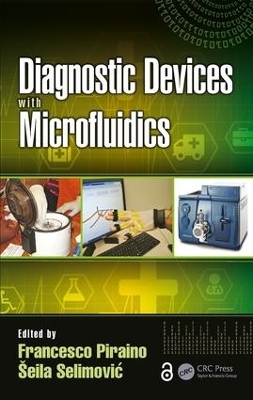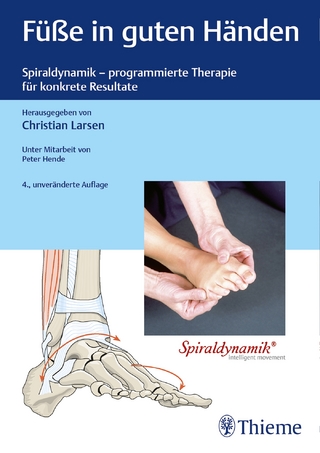
Diagnostic Devices with Microfluidics
Crc Press Inc (Verlag)
978-1-4987-7293-8 (ISBN)
This book provides a current view of the research and commercial landscape of diagnostics devices, particularly those that utilize microscale technologies, intended for both patient and laboratory use. Common diagnostic devices that are based on microfluidic principles include glucose sensors for diabetic patients and over-the-counter pregnancy tests. Other diagnostic devices are being developed to quickly test a patient for bacterial and viral infections, and other diseases. The chapters, written by experts from around the world, discuss how to fabricate, apply, and market microfluidic diagnostic chips – for lab and at-home use. Most importantly, the book also contains a discussion of topics relevant to the private sector, including patient-focused, market-oriented development of diagnostics devices.
Chapter 9 of this book is freely available as a downloadable Open Access PDF at http://www.taylorfrancis.com under a Creative Commons Attribution (CC-BY) 4.0 license.
Francesco Piraino is currently a research scientist at the Swiss Federal Institute of Technology in Lausanne (Switzerland). He uses microscale technologies to develop next-generation microfluidic diagnostics platforms. Following his graduate studies in Biomedical Engineering at Politecnico di Milano (Italy) and at Harvard-MIT Division of Health Science & Technology (USA), he joined the Broad Institute of MIT and Harvard (USA) to develop devices for single-cell genomics. Dr. Piraino is a trained bioengineer who has also attended programs at the Universitat de Barcelona (Spain), the City College of the City University of New York (USA), and the Massachusetts Institute of Technology (USA). His work aims to solve problems at the intersection of biomedical engineering and medicine. His research interests include in vitro diagnostics, tissue engineering, and biomaterials. Šeila Selimović is director of the NIBIB programs in tissue chips/tissue preservation technologies and biosensors. Her other scientific interests include lab-on-a-chip platforms, paper microfluidics, and point-of-care diagnostics. In 2015, she was selected as one of the "50 Leaders of Tomorrow" from among hundreds of young biotech leaders in the Mid-Atlantic region. Prior to her current position, she was chosen by the American Association for the Advancement of Science to serve as a Science and Technology Policy Fellow at the U.S. Department of State, where she covered science diplomacy issues related to energy security, climate, and innovation. Previously, she was a postdoctoral research fellow at Harvard Medical School and Brigham and Women’s Hospital in Boston, Massachusetts. Dr. Selimović’s research has focused on the development of microfluidic platforms for applications in biophysics and biological engineering, and her research interests include the physics of microscale flows, protein crystallization, colloidal suspensions, and rheology and microrheology. Dr. Selimović earned her PhD and MSc in physics from Brandeis University, with National Science Foundation support, and her BA in physics and German from Wellesley College. She is a member of Sigma Xi.
Preface
Series Editor
Editors
Contributors
Section I Microfluidic Devices for Diagnostics
1. Handheld Microfluidics for Point-of-Care
In Vitro Diagnostics
2. Body-Worn Microfluidic Sensors
3. Fabrication and Applications of Paper-Based Microfluidics
4. Printed Wax-Ink Valves for Multistep Assays in Paper
Analytical Devices
5. Mycofluidics: Miniaturization of Mycotoxin Analysis
6. Planar Differential Mobility Spectrometry for
Clinical Breath Diagnostics
Section II Applications in Disease Detection
7. Rapid Diagnosis of Infectious Diseases Using
Microfluidic Systems
8. Microfluidics for Tuberculosis Diagnosis: Advances,
Scalability, and Challenges
Section III Practical Aspects of Developing
a Commercial Diagnostic Device
9. Starting with the End in Mind by Developing Diagnostics
around User Needs
10. Incorporating the Needs of Users into the Development of
Diagnostics for Global Health: A Framework and Two Case
Studies
Index
| Erscheinungsdatum | 15.07.2017 |
|---|---|
| Reihe/Serie | Devices, Circuits, and Systems |
| Zusatzinfo | 18 Tables, black and white; 8 Line drawings, color; 3 Line drawings, black and white; 38 Halftones, color; 2 Halftones, black and white |
| Verlagsort | Bosa Roca |
| Sprache | englisch |
| Maße | 156 x 234 mm |
| Gewicht | 680 g |
| Themenwelt | Schulbuch / Wörterbuch |
| Medizin / Pharmazie ► Physiotherapie / Ergotherapie ► Orthopädie | |
| Naturwissenschaften ► Physik / Astronomie ► Strömungsmechanik | |
| Technik ► Maschinenbau | |
| Technik ► Medizintechnik | |
| Technik ► Umwelttechnik / Biotechnologie | |
| ISBN-10 | 1-4987-7293-5 / 1498772935 |
| ISBN-13 | 978-1-4987-7293-8 / 9781498772938 |
| Zustand | Neuware |
| Informationen gemäß Produktsicherheitsverordnung (GPSR) | |
| Haben Sie eine Frage zum Produkt? |
aus dem Bereich


